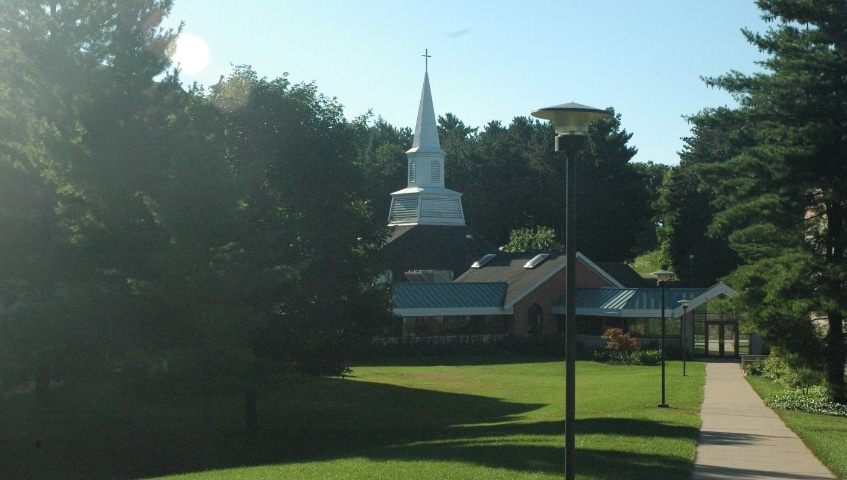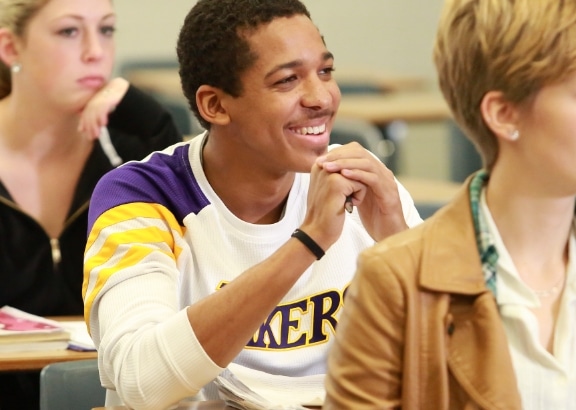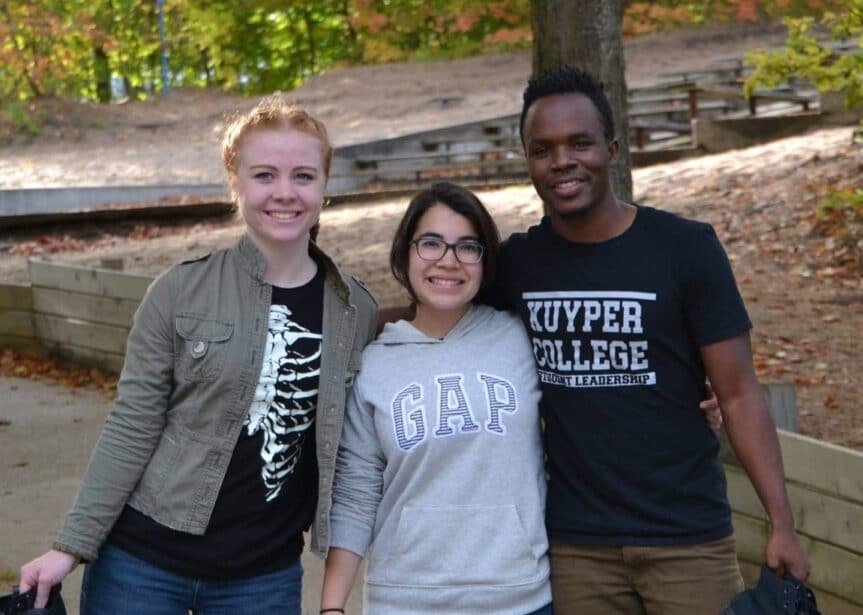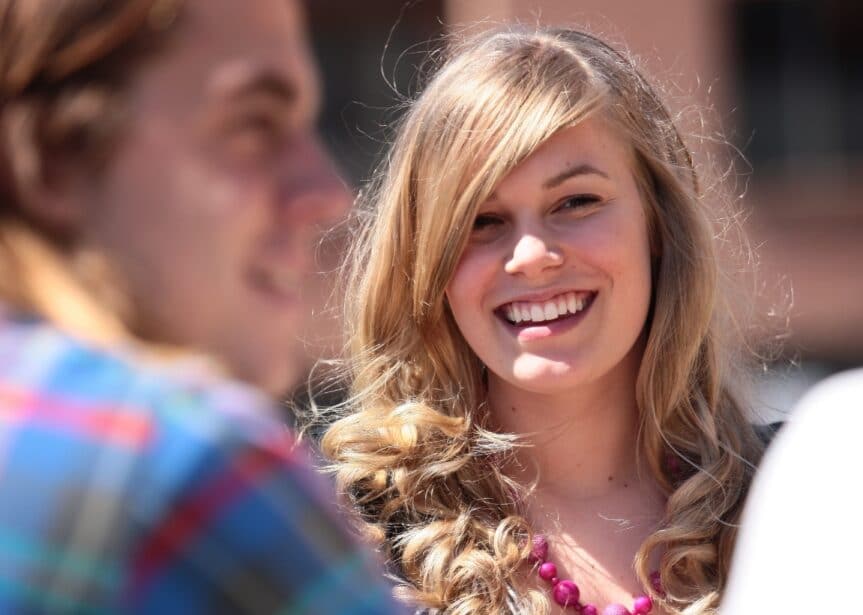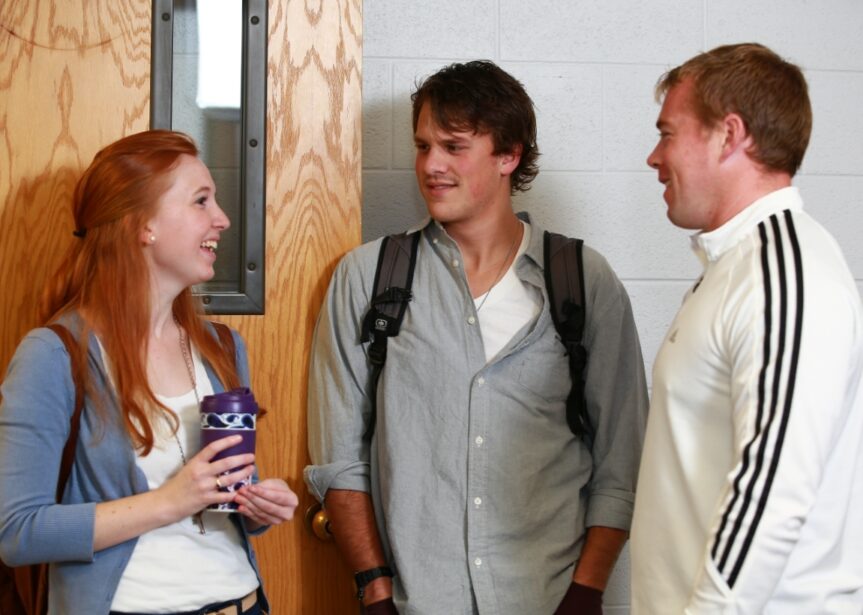Kuyper Hosts Global Awareness and Advocacy Day
Professor Kelli Hoffman is passionate about discussing social issues, even when they happen 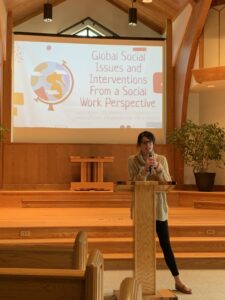
in other corners of the world.
“Global issues can sometimes seem overwhelming. When you’re just one person, it’s hard to think about how you can impact something like human trafficking,” Kuyper’s assistant professor of social work and director of field education told members of the Kuyper community gathered in the Vos Chapel in early December for Global Awareness and Advocacy Day.
The event takes place each fall and is the culmination of a semester’s worth of work for students enrolled in Kuyper’s international social work class. It allows them to share their research into global social and human rights issues.
Hoffman added that she believes grappling with these issues is part of bringing about the kingdom of God.
“Regardless of whether we take big actions or small actions, we all can have an impact. When
we dothat, we’re entering into God’s restoration and helping bring back His ‘shalom,’” she said.
Jen Colin, social work program director and assistant professor, described the goal of the event:
“It’s a chance for students to put their 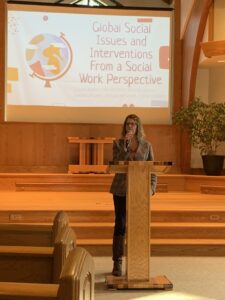 social work hat on and analyze a particular issue affecting a particular country. But ultimately, it allows them to put forth their proposed solutions and the steps they would take to get there.”
social work hat on and analyze a particular issue affecting a particular country. But ultimately, it allows them to put forth their proposed solutions and the steps they would take to get there.”
Each of the six students speakers shared the highlights of their research project. This included background information on their country of interest, ways their chosen issue affects that country, and how it violates global human rights standards.
Topics included female genital mutilation in Iraq and Kenya, online sexual exploitation of children in the Philippines, hunger and food access in Yemen, and the genocide of the Rohingya people in Malaysia.
Laura Arens, a senior in the social work program, said that the way to have a meaningful
impact on these problems is to change social norms associated with them.
“It happens when a group of people change their minds because of new information,
and then they recruit others until a tipping point is reached in the culture,” she said.
After the presentations were completed, Hoffman returned to the microphone and
challenged 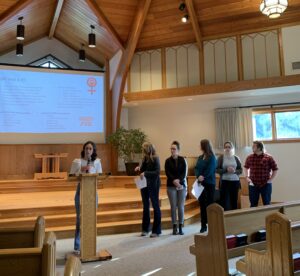 the audience to continue to engage with the issues discussed that day.
the audience to continue to engage with the issues discussed that day.
“Take some time to process and pray over them. Engage in your own research,” she said.
“Sometimes, it feels like our small actions don’t necessarily matter or make a change but,
like I said before, every step we take is another step towards restoration.”



